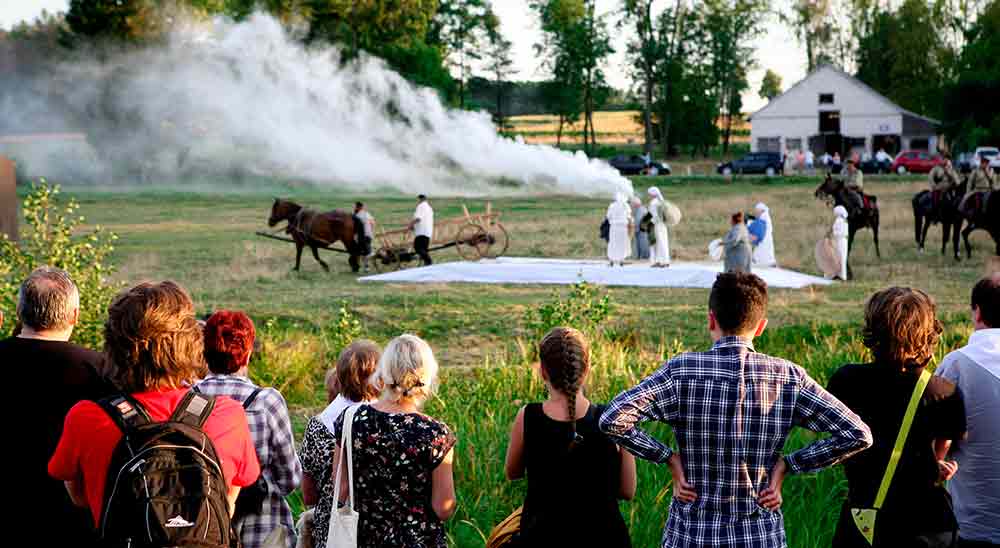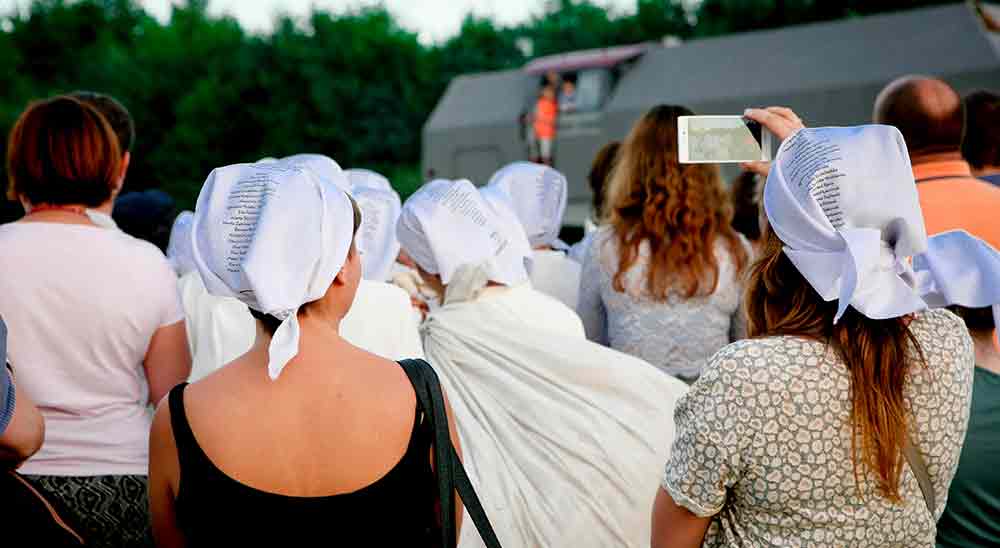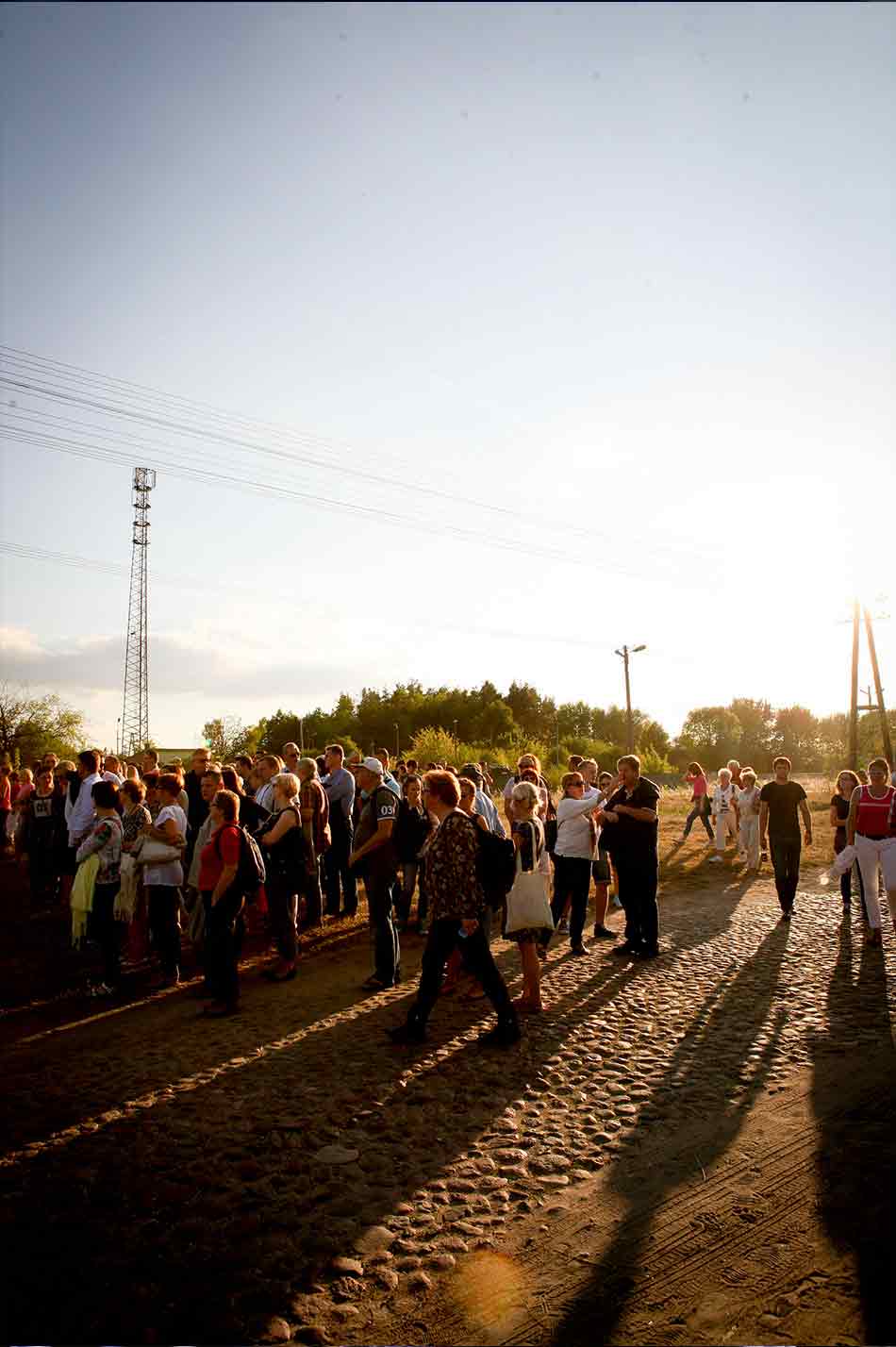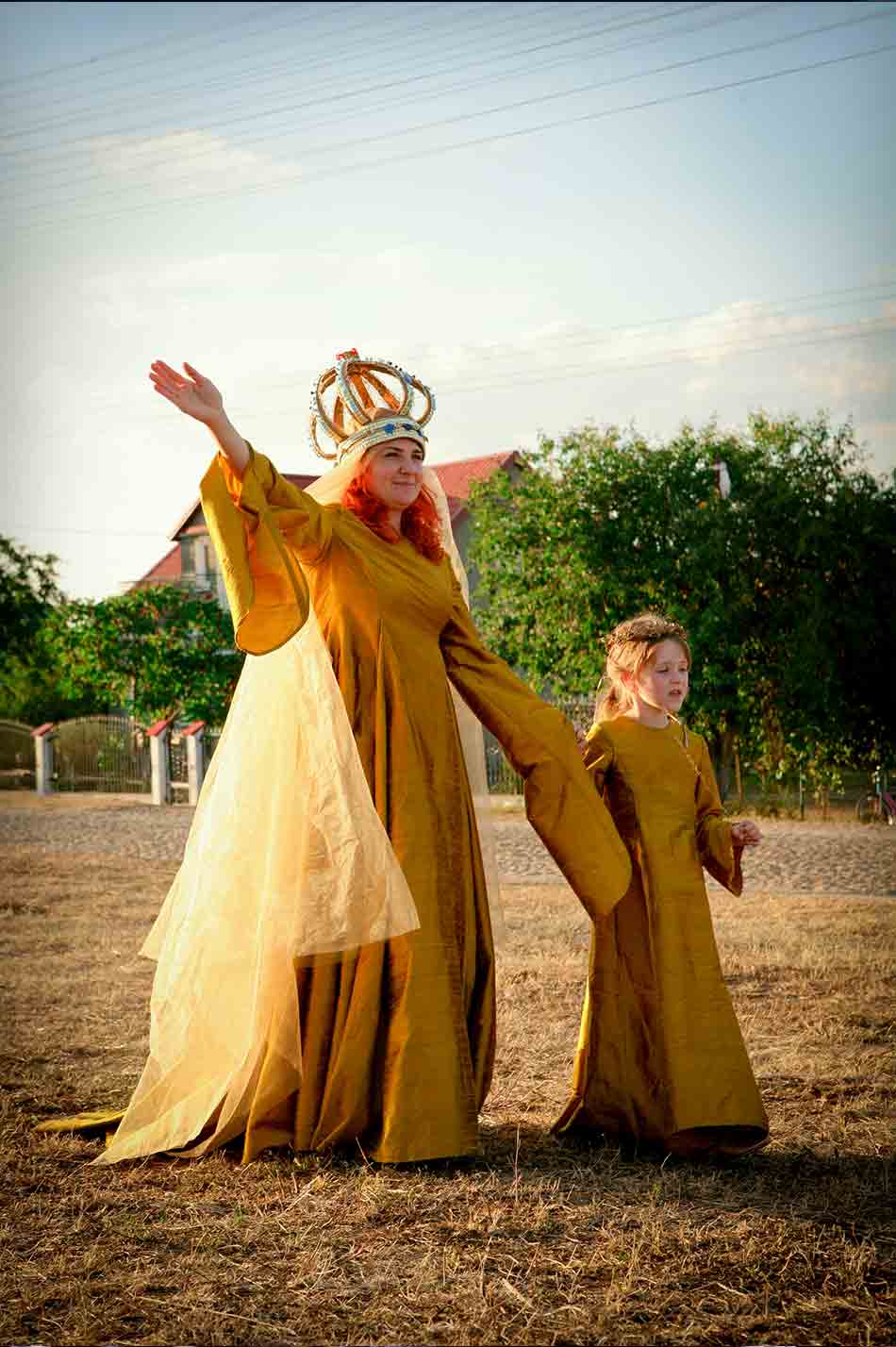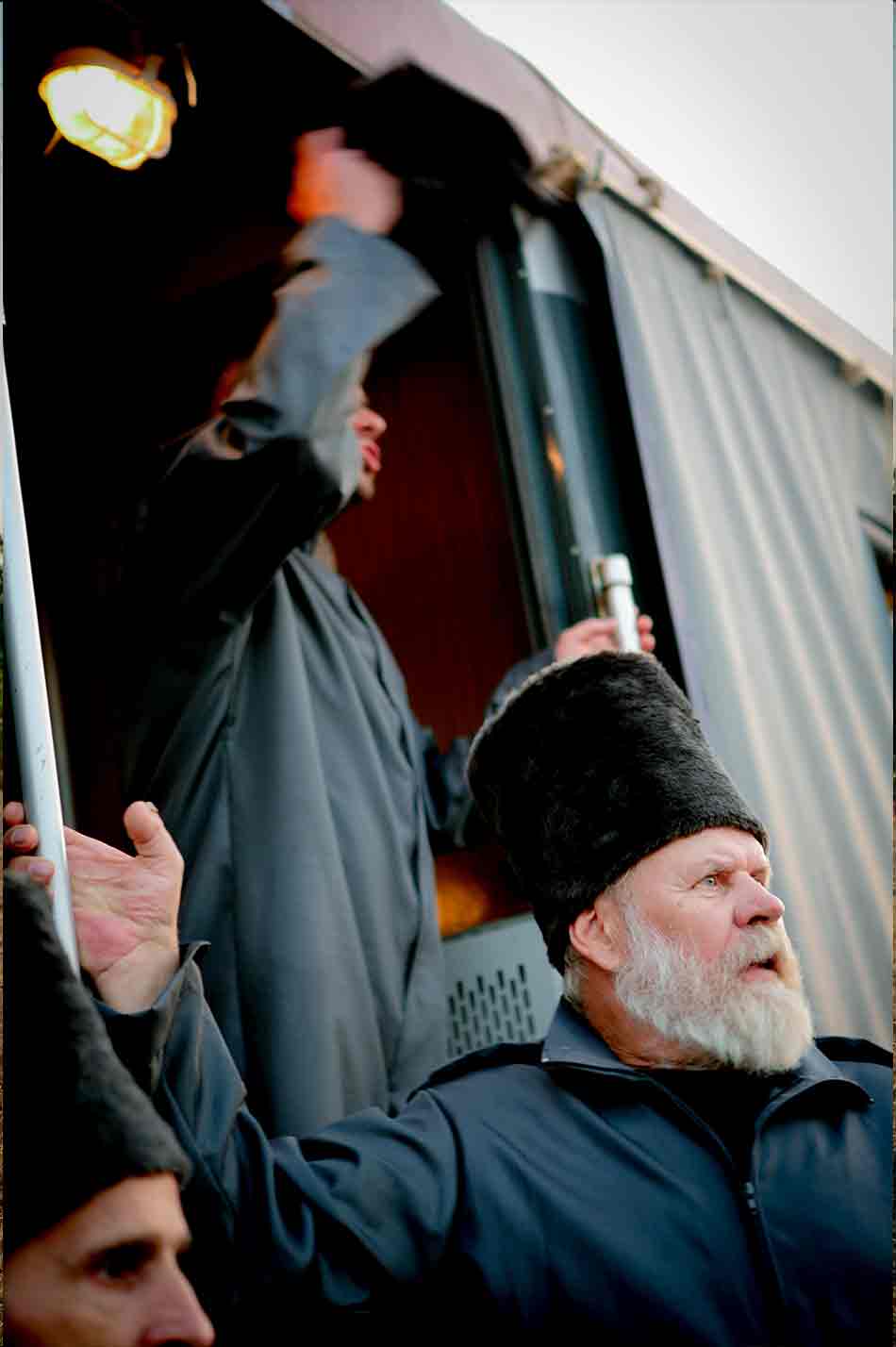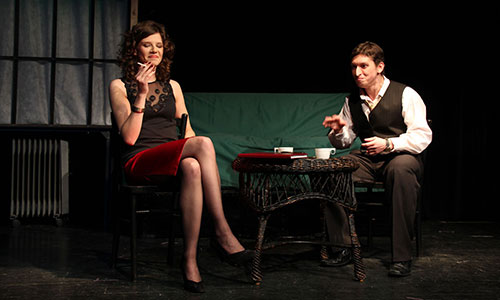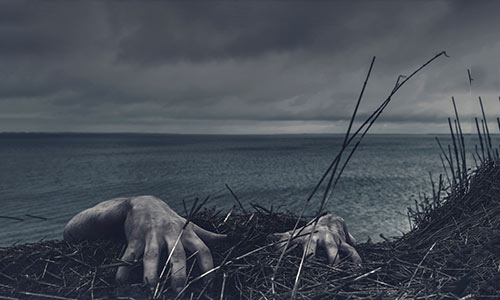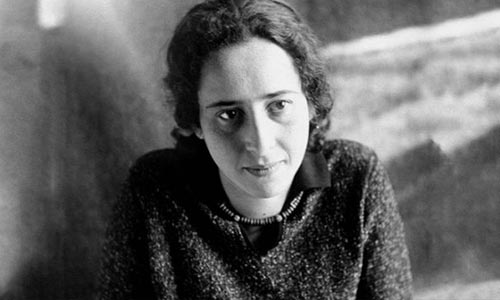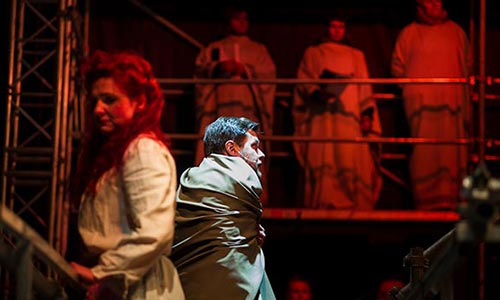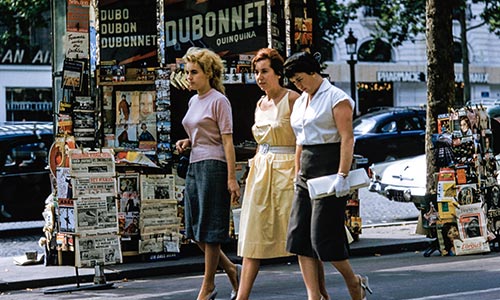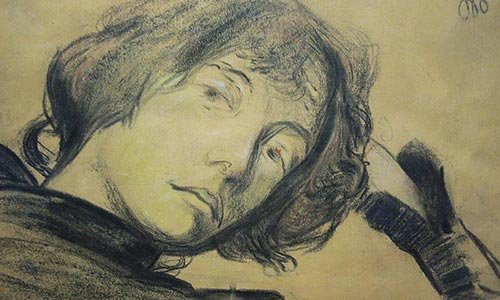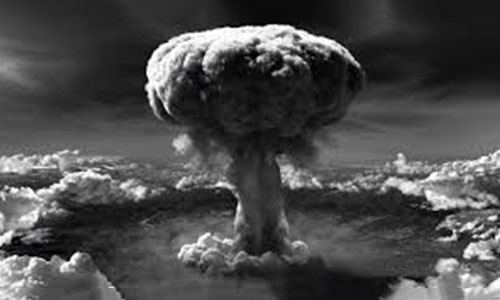Evacuation! Retreat!
Run! Faster! Faster!Bezhency.
Exodus.
an outdoor performance, staging: Dramatic Theatre in Białystok, along the Sokoły-Łapy railway line
date: sierpień 2015
idea and script of the performance: Dana Łukasińska
director: Agnieszka Korytkowska-Mazur
photos: Emilia Rogalska
← home
WOUNDED SOLDIER: I will tell you in secret that they fight the tsar and his generals,
but it’s us soldiers who get the beating.
ARMY DOCTOR: It is Hippocrates who supposedly said: “he who desires to practice surgery must go to war. But let me tell you, sister, that it’s utter bullshit. In a war you can become a butcher at best. Like me. I’m excellent at separating meat from bones. And did you know, sister, that ancient Romans were skillfully handling complicated abdominal cavity injuries even under field conditions? They poured olive oil and water on the intestines sticking out of the patient’s body to prevent them from drying up. And to “fit” them back inside, they sat the patient on his, pardon my French, ass. In this position the abdominal muscles got relaxed. Because, sister, you have to know that at that time they didn’t have any muscle relaxants yet. And it must have hurt like, excuse my language, a motherfucker. We’re done here, sister. Let’s close him up!
BEZHENSTVO 1915:
- 676 trains with around 700 thousand refugees passed through the railway junction in the city of Syzran on the Volga river till the end of 1915. Among them 10 thousand sick with infectious diseases: cholera, typhoid, typhus, smallpox etc.
- 62 thousand people, mainly the refugees from Mazovia, passed through the border post in Sieniawka by 23 August 1915; it was just the beginning of the mass exile.
- 1526 dead refugees were found and buried near the station of Minsk by sanitary troops (September-October 1915)
- 400 train cars with 20 thousand refugees left from Minsk between October and November 1925.
- 500 thousand people, including 20 thousand children, were found in the period between the summer of 1915 and the spring of 1917 thanks to the actions of the Central Records Office of the Tatiana Committee.
- 4 thousand found children only knew their first name


